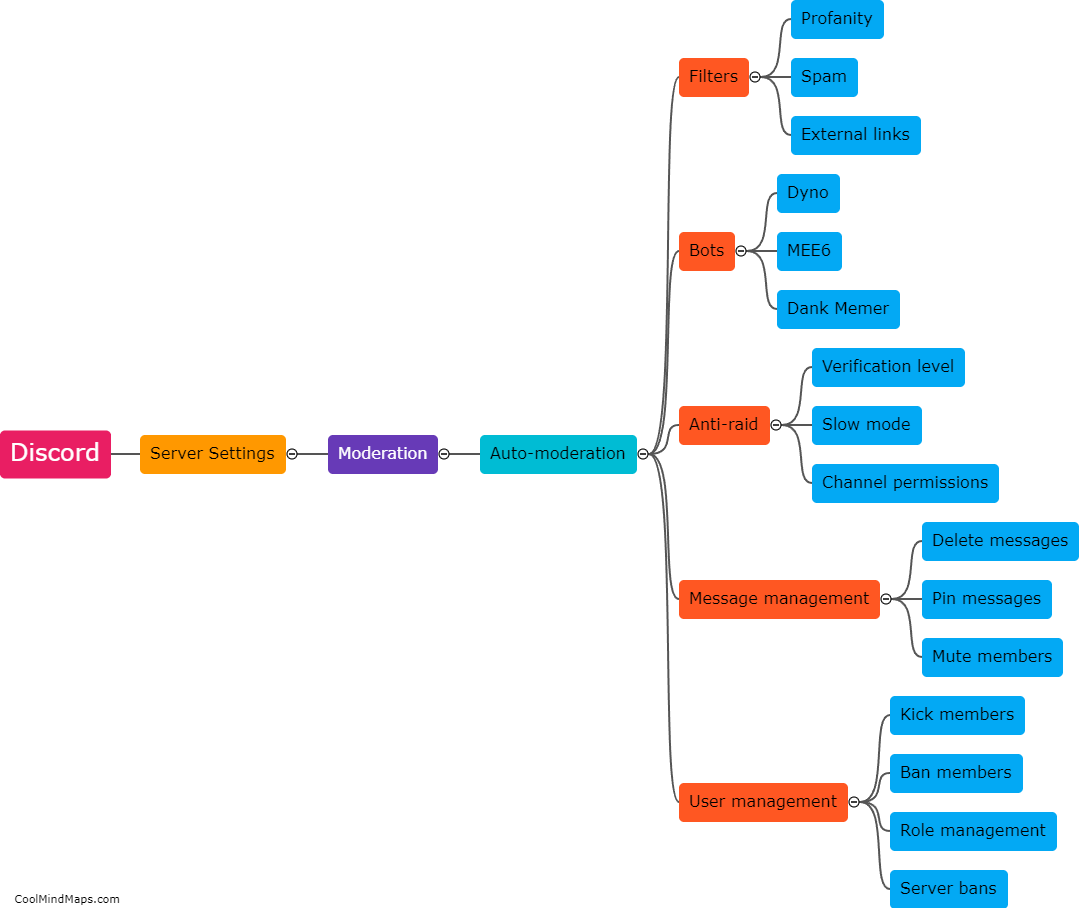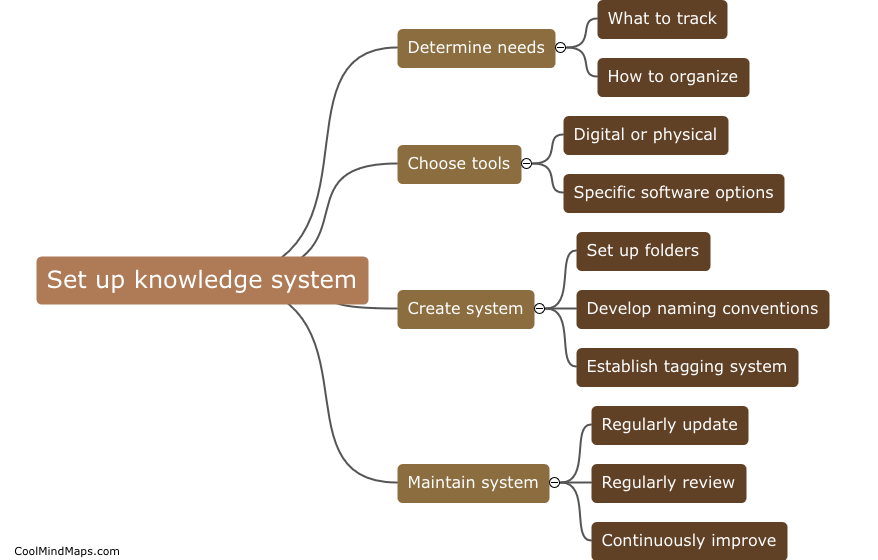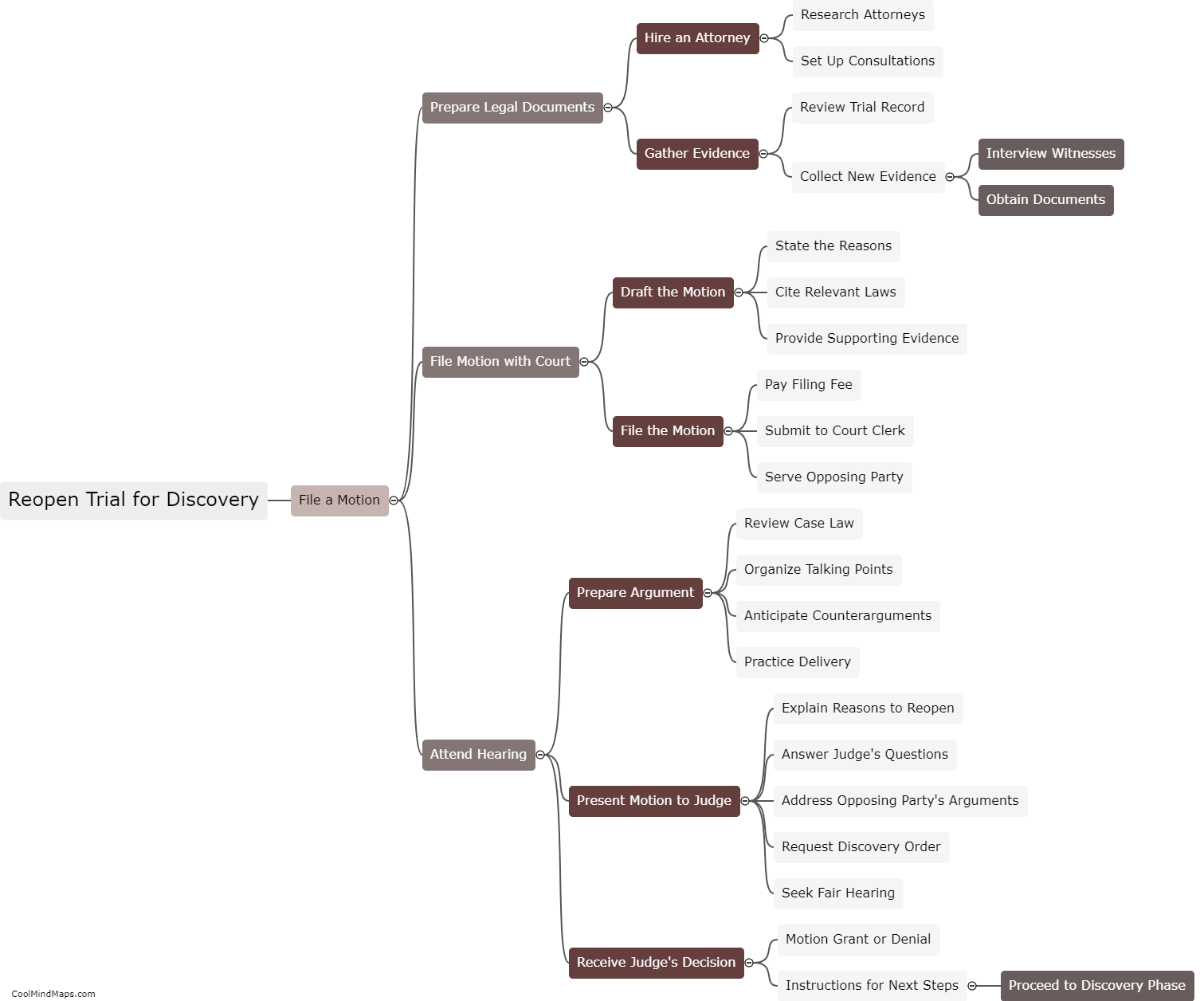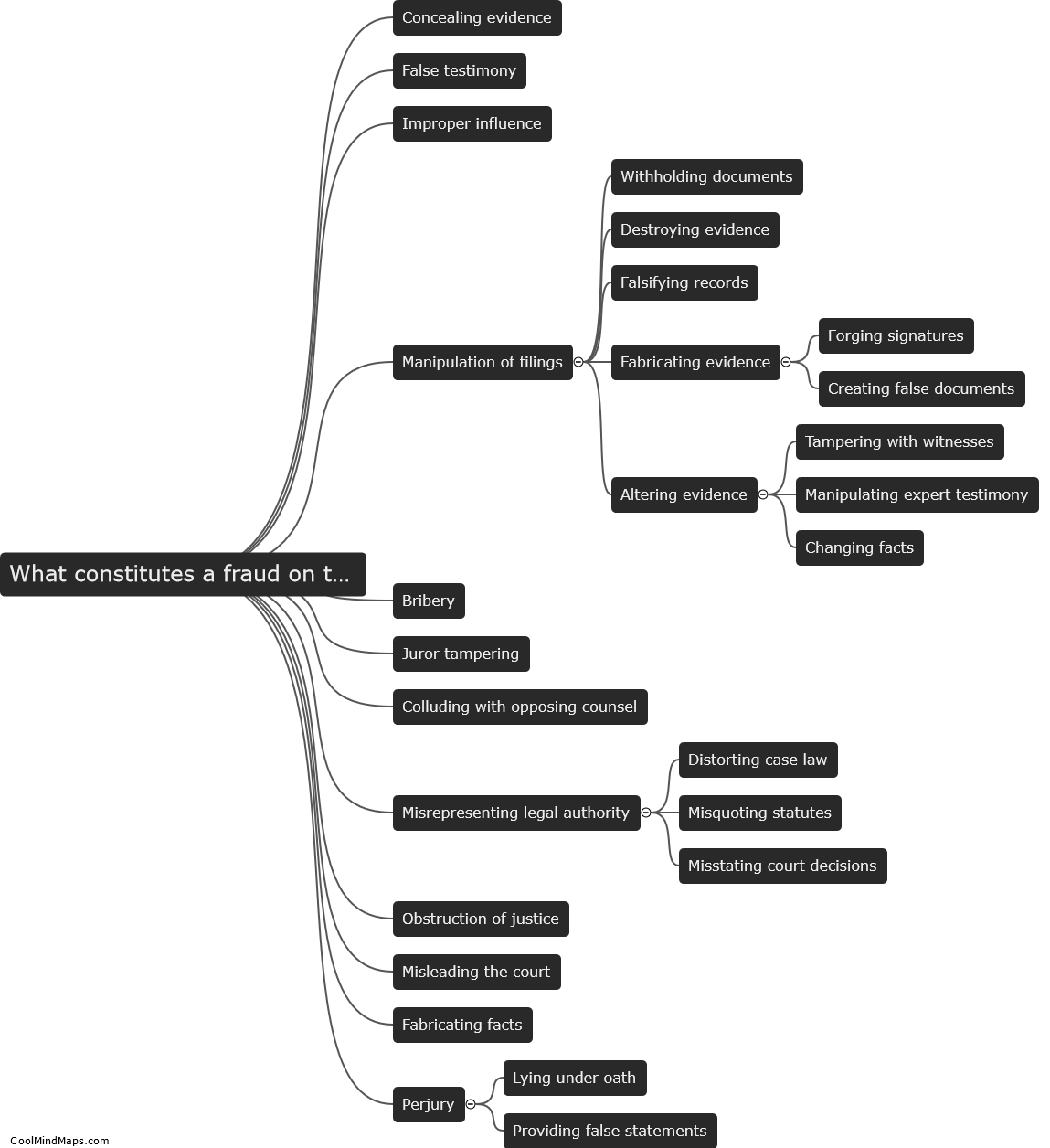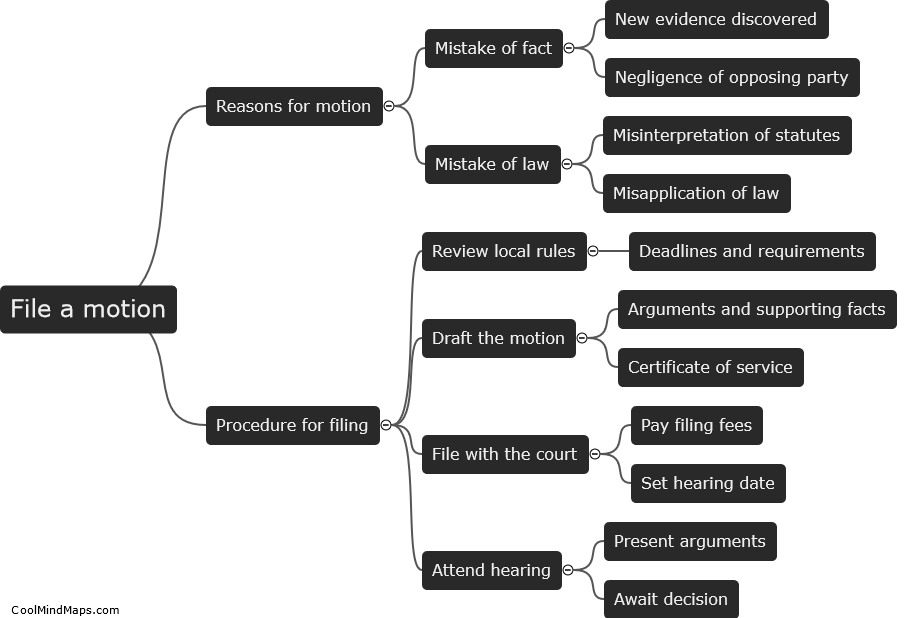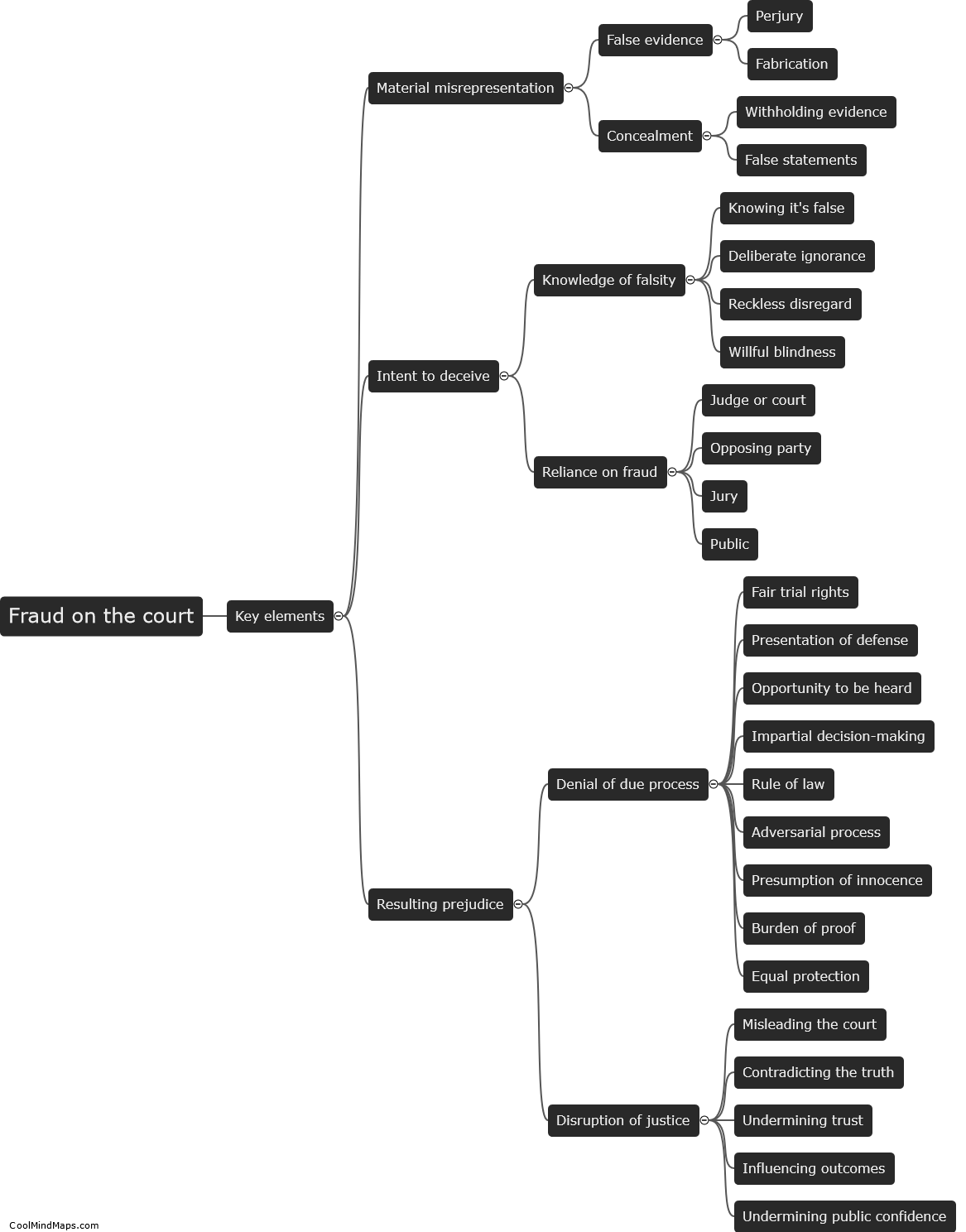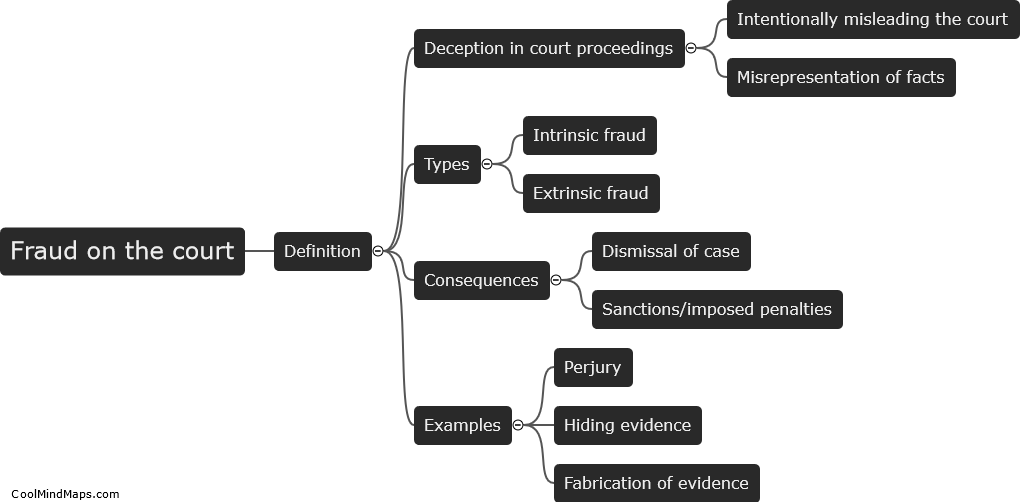What case law establishes grounds for vacating a judgment?
Case law establishes grounds for vacating a judgment in situations where there has been a miscarriage of justice or a procedural error during the litigation process. Some common grounds for vacating a judgment include newly discovered evidence that could not have been reasonably discovered before, fraud or misrepresentation by one of the parties, misconduct by a judge or an attorney, or a violation of the defendant's due process rights. These grounds aim to ensure that a fair and just outcome is reached in legal proceedings, and that judgments are not allowed to stand when they have been rendered unfairly or unlawfully. Legal precedents and case law play a crucial role in determining the specific grounds for vacating a judgment in different jurisdictions.

This mind map was published on 22 December 2023 and has been viewed 88 times.

